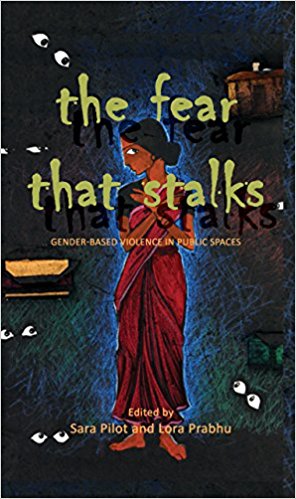The Fear That Stalks, a product of a conference organized by CEQUIN in collaboration with UNDP and NCW, speaks to the complicated nature and multifaceted dimensions of gender-based violence in public spaces. This excellent collection of nine essays spread over three hundred pages anticipates some of the debates on sexual violence that resounded in the streets of Delhi in the winter of 2012.
Urvashi Butalia signposts the notion of public spaces around four registers. She points out that the very notion of public space is gendered since patriarchal frameworks assign to femininity the space of domesticity and public spaces to masculinity. Space is not a homogenous category, although the meaning of what is a public space is controlled, regulated and controlled by the state. For instance, the criminalization of the poor accompanies the expulsion of the working class workplace from the street, neighbourhood or park. Butalia points out that space is distinct from place. Hence, women’s ability to find a space of leisure, imagination or creativity at home is a product of historical struggle. The essays address varied notions of public and private spaces and/or places with the intent of highlighting the complex ways in which gender based violence finds inscription.

